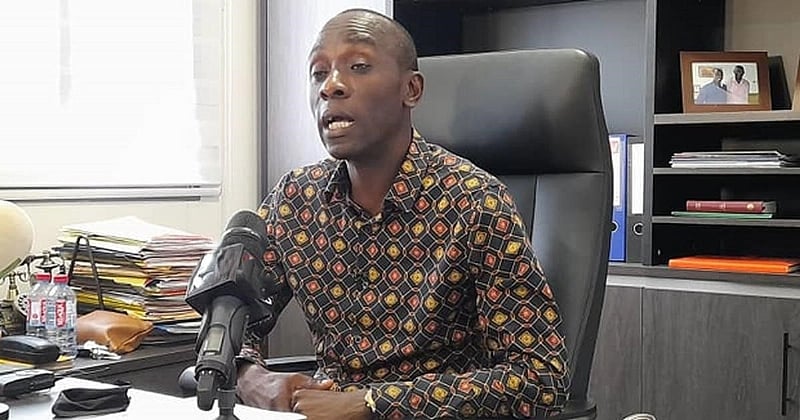Ernest Owusu-Bempah, the Deputy Communications Director of the New Patriotic Party (NPP), has made bold predictions regarding the upcoming 2024 general elections, asserting that the party will achieve a one-touch victory with 50.9% of the votes. Owusu-Bempah recognizes the potential challenges ahead but remains optimistic, attributing this confidence to the NPP’s efforts to improve the economic circumstances of Ghanaians through various policies. He highlighted significant achievements such as the Free Senior High School (SHS) initiative, which he believes has positively impacted the vulnerable segments of society, positioning the NPP favorably as voters assess their options.
During an appearance on the Onua FM program ‘Yen Nsem Pa’, Owusu-Bempah addressed a recent poll conducted by Global Info Analytics that indicated NPP’s flagbearer, Dr. Mahamudu Bawumia, trailing behind the National Democratic Congress (NDC) candidate, John Dramani Mahama. Despite this polling data, he argued that the NPP has a strong chance of winning the elections. Drawing on his extensive experience in politics and his close associations with prominent political figures, Owusu-Bempah expressed confidence in the electorate’s readiness to support the NPP, stating that the dynamics of this election are distinctly different compared to previous contests.
Owusu-Bempah pointed to several factors that he believes will contribute to the NPP’s success in the 2024 elections. He emphasized that this election marks the first time the party has selected a Muslim candidate, which he views as a significant shift in the political landscape. According to him, this unique decision will reshape public perception and engagement with Dr. Bawumia’s leadership. Furthermore, he asserted that voters would be surprised by the election outcomes when they see the favorable results for the NPP, implying that the anticipated public support is not just limited to the party’s historical base.
Highlighting the importance of grassroots support, Owusu-Bempah urged party members and supporters not to judge the NPP’s performance through the lens of urban centers like Accra. He insisted that understanding the party’s true impact requires looking beyond metropolitan areas to the rural communities that significantly benefit from NPP policies. He specifically mentioned cocoa-growing regions as critical litmus tests for the party’s outreach and effectiveness, advocating for direct engagement with these voter bases to gauge sentiment.
As he reinforced his position, Owusu-Bempah painted a picture of an evolving political landscape in Ghana, characterized by shifting loyalties and priorities among voters. He contended that the electorate is increasingly discerning when it comes to the effectiveness of government initiatives, suggesting that the NPP’s past accomplishments and their ongoing commitment to addressing economic challenges will resonate strongly with the voters. By emphasizing the results of the NPP’s policies, he believes that the party stands to retrieve its favorable status amongst the citizenry, thereby achieving his projected electoral outcome.
Ultimately, Owusu-Bempah’s predictions and rhetoric underscore a broader narrative of confidence within the NPP. His remarks encapsulate an assertive stance ahead of the elections, reflecting both his faith in the party’s strategies and the conviction that Ghanaians will recognize the NPP’s efforts in governance. As the election date approaches, the NPP will strive to capitalize on its achievements while countering opposition narratives, continuously advocating for the policies that have aided them, and engaging with voters to solidify the expectations for a one-touch victory.














